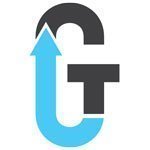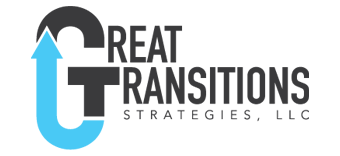Career Change
What if you had clarity about where you are going with your next career transition and why? What would the impact on your life be if your home and work lives were in balance, your current position capitalized on your strengths, and your career path was fulfilling your values and life purpose? That is the goal of transition coaching, to assist you with your career change.
I want to help you get on that path by introducing you to transitions coaching. Your first question probably is: What does transition coaching look like? I will give you the general framework I use to guide my transition coaching. However, every engagement is unique and tailored to meet your specific needs.
My Transition Coaching Process
As a formally trained professional coach I provide support, encouragement, perspective, strategies and accountability to support you in achieving your desired results. I provide the coaching, and you do the work. My process is built on the well-researched scientific foundation of Intentional Change Theory. You will start by defining and discovering your “ideal self” and future situation. That definition will intentionally drive your transition to your new career or position. This process is not about resumes and networking, it is about you discovering what would be ideal for you based on your strengths, values, and what is important in your life.
For maximum growth the recommended engagement time is six months with coaching sessions every 2-3 weeks. Some engagements may be shorter, however shorter engagements may limit the overall success. My minimum engagement for transition coaching is four sessions. A typical six-month engagement for transition coaching looks like this:
Session 1
A two-hour session. We set the agreement for the engagement, establish the relationship, explore your strengths, focus areas, and overall goals. Generally sessions after the first are for one-hour unless you would like longer sessions
Session 2
We will focus on the vision you have for an ideal transition. Working through a process you will define your vision for an ideal transition. In this session values and life mission or purpose are explored.
Session 3
We build on session two and we will continue to gather more data. That data may be self-assessments or self-reflective exercises. The goal is for you to build your self-awareness and take inventory of your strengths and gaps compared to your ideal vision. Relationships that will provide support, help, and encouragement throughout the process will also be explored. Using the acquired data a learning agenda is built to set the path to pursue your vision.
Session 4 & Beyond
Consist of working through the learning agenda; setting goals, taking action, experimenting, developing new behaviors, evaluating successes and making adjustments as needed to achieve the vision. Values, strengths and progress towards your vision will be constantly revisited and assessed. Health, self-care, balance, and family life are integrated into the process.
The Final Session
This is where the engagement is extended or closed and plans for next steps are put into place to ensure continued growth towards your ultimate vision.
The Result
The result is clarity about where you are going with your transition and why. You will have also developed a plan to take charge of putting your home and work lives are in balance, finding a position that capitalizes on your strengths, and determine a career track with the potential to fulfill your values and life purpose.
Want to learn more? Contact Gary Slyman at Great Transitions Strategies at: https://greattransitionsstrategies.com/contact-regular/



